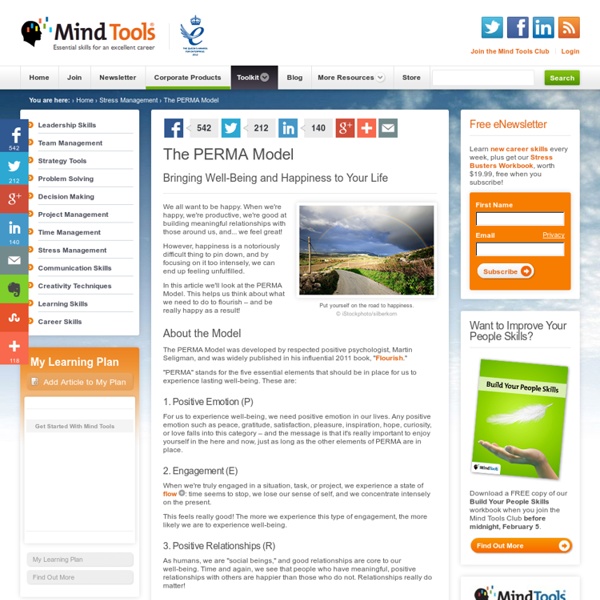PERMA Model - Career Development from MindTools

Math: Counting and Comparing Difficulties
Counting and Comparing Difficulties Subitizing is the ability to recognize a number of briefly presented items without actually counting. A common response to students who are having counting problems is to simply have them do daily counting practice; however, students with counting and comparing difficulties also benefit from practice that utilizes patterns and relationships. These strategies improve their ability to conceptualize and compare numbers without counting. Data in a study of dyslexic students who had difficulty with basic arithmetic skills (Fischer B., Kongeter A., Hartnegg K., 2008) showed that dyslexic children could also improve subitizing and visual counting through daily practice. (See the example strategy below.) Example Strategy: Using Icons of Quantity To Teach Whole-to-Part Relationships Teacher: “How many are you starting with?” Example Strategy: Using Patterns To Support Number Comparisons Strategy Demonstration: Prompt the Missing Addends to 10 About Chris Woodin:
Related:
Related:



